Jeangu Macrooy will represent the Netherlands at Eurovision 2021 with his song “Birth Of A New Age”.
Jeangu was originally due to sing “Grow” at Eurovision 2020. However, the contest was cancelled as a result of the COVID-19 pandemic. But, just like several other countries, the Netherlands opted to stick with its singer for Eurovision 2021. “Birth Of A New Age” was debuted during a live TV performance in early March.
Now, we’ve compiled 10 facts you need to know about Jeangu Macrooy. Let’s do this!
The Netherlands at Eurovision 2021: Facts about Jeangu Macrooy
1. He’s from Suriname
Jeangu has only lived in the Netherlands for seven years. He was born in Suriname, a former Dutch colony in South America. He relocated to Europe in 2014 to study at ArtEZ Popacademie in Enchede. The official language in Suriname is Dutch so Jeangu is fluent in the language. Many Surinamese people move to the Netherlands to work and study and have done so for decades. Jeangu’s father Jerrel even lived and worked in Amsterdam for some years before returning to Suriname and starting a family.
2. He has a twin brother
Not only is Jeangu very close to his twin brother Xillan — who is nine minutes younger — they are also very close when it comes to music and have a distinctive way of working together. According to their mother Jeannette, the boys have always had their own method of writing song lyrics, with that method developing through them drawing pictures as children. “They always used one sheet. One would draw from the left of the sheet, the other would draw from the right. And later on, this is how they would write songs and lyrics. One would start with a specific line, the other would do the next one and so on and so on, until a lyric was born”.
View this post on Instagram
3. He did everything with his brother until the age of 20
The brothers were separated for the first time when Jeangu moved to the Netherlands to study music. This was very difficult for both of them, especially Xillan. While Jeangu was following his passion, Xillan was left behind with no change. Luckily, they are now reunited as Xillan also moved to the Netherlands two years after Jeangu, to study at the same school. Xillan also has his own band called KOWNU. Their biggest fan is, of course, his brother.
View this post on Instagram
4. He’s out and proud and a big advocate for LGBT+ rights in his homeland
Despite being more open to the LGBT+ community than many of its neighbours, Jeangu admits that he felt a little trapped in Suriname. That was also a reason for him to move to the Netherlands, although his passion for music was the main focus. After coming out to his mother at the age of 17, he’s now determined to be a role model for young Surinamese people who may be afraid and confused about their sexual orientation. “I want to show them that its okay to be yourself, and if I can in any way help them through my music, I will”, he said. His mother Jeannette, who is and has always been very supportive of gay rights, says that she was not surprised at all, when Jeangu came out. She was even less surprised when his brother Xillan came out a year later. “They always had a flock of girls around them, but never any girlfriends, you know. And I’ve always said to them: “Be true to yourself”.
View this post on Instagram
5. Music has always been a big part of his life
Jeangu was raised in a very musical household, with his father listening mostly to Bob Marley and Jimmy Cliff. His mother blasted divas such as Whitney Houston, Mariah Carey and Celine Dion. Needless to say, both he and his brother found their passion in music very early on, and got their first guitars at the age of 13. They started their very first band while still in primary school. And although their parents supported their passion wholeheartedly, their father Jerrel admits he was worried, especially regarding Jeangu. “His dreams were really big. Maybe too big. He’s not much of a talker, but when he talked about even making it in the United States, I got a bit worried”.
6. He and Xillan used to communicate using a made-up accent
When the brothers attended the Conservatory of Suriname in 2011, Albert Arens, their artistic director spotted their talents instantly. But at the same time, he had to work to bring them out of their shells and communicate “normally” so to speak. “They had such deep, soulful and rich voices with an incredible reach! But they were very introverted and had a strange accent they had taught themselves. We had to fix that a little” said Albert. Made-up accent or not, the brothers have always been intertwined in music. A little over a year ago, they released their first official duet “Second Hand Lover”. Whether they wrote it, using their childhood quirk of a fake accent is unknown, but they truly fit together like strawberry and chocolate.
7. He had his first tour at the age of 17
The brothers started another band called Between Towers while attending the Conservatory of Suriname. With their father’s help, they would play gigs at small cafés around the capital. The band and all their equipment would cram into their father’s small Toyota Mark II to travel between gigs. However, because their band played mostly soul and rock, with the twins writing most of the material, the Surinamese public was less than impressed. The most popular music genres in the country were reggae, soca and kaseko. Music people could dance to. And because in Suriname it is believed that music is entertainment, not a profession, the public was also very reluctant to pay in order to listen to what the brothers had to offer. But Jeangu found redemption when his single “High on You” became an instant hit in Suriname.
8. He released one album with Between Towers
Jeangu and Xillan’s band Between Towers, which got its name from one of the twin’s friends as a playful tribute to their towering height, released one studio album in their native Suriname. The record was called Stars on my Radio but didn’t do all that well, despite sleek production and well written and performed songs. The public of Suriname just wasn’t ready for the Macrooy soul….yet.
9. He quickly made a name for himself in the Netherlands
After leaving his family at the age of twenty, to study music, it didn’t take long for Jeangu to make it. Shortly after his arrival to the Netherlands, he met Perquisite, a producer and composer who immediately spotted Jeangu’s pure talent. The producer signed Jeangu up with his record label Unexpected Records. The road from there on was wide open for Jeangu, for he shot to fame almost instantly and has played his music on several Dutch festivals, as well as in Belgium and Germany. He has been nominated twice for the Edison Awards, which are the Dutch version of the Grammy Awards. He’s also had a number of successful singles, such as “Gold” which was used in an HBO advertisement for Game of Thrones.
10. He’s a reading coach
Jeangu is a jack-of-all-trades. He is a singer, songwriter and painter, but he also loves up to dive into a book once in a while. And in 2020, Jeangu was named one of three “reading coaches” that will encourage Dutch school students to pick up a book. Alongside rappers Famke Louise and Dio, Jeangu is challenging kids to read three books in six months. The campaign runs from November 2020 until May 2021. Jeangu’s choices are Confettiregen by Splinter Chabot, Leugenaar leugenaar by Herman van de Wijdeven and Echte Amerikaanse jongens (All Americans Boys) by Jason Reynolds.
View this post on Instagram
Bonus fact – How to pronounce Jeangu
For the first syllable, think of the common French name Jean. Perhaps the fashion designer (and Eurovision superfan) Jean Paul Gaultier, or Monaco’s Eurovision 1969 singer Jean-Jacques. As for the second syllable, Jeangu recommends thinking of other words that rhyme with it, like the Dutch words paraplu (umbrella), menu (menu!), jus (juice), tenue (uniform). We wouldn’t necessarily recommend that English speakers use these examples, due to differences in pronunciation. But Jean also threw in a few French words that might be more helpful. The final syllable of deja vu and the French greeting salut will set you in the right direction. Just think of Jeangu and his French friend and you’ll be good. Jeangu also recorded a public service announcement to make it easier for people to get the pronunciation right.
Can Jeangu take home another Dutch win? Are you excited to see him in May? Let us know in the comments.
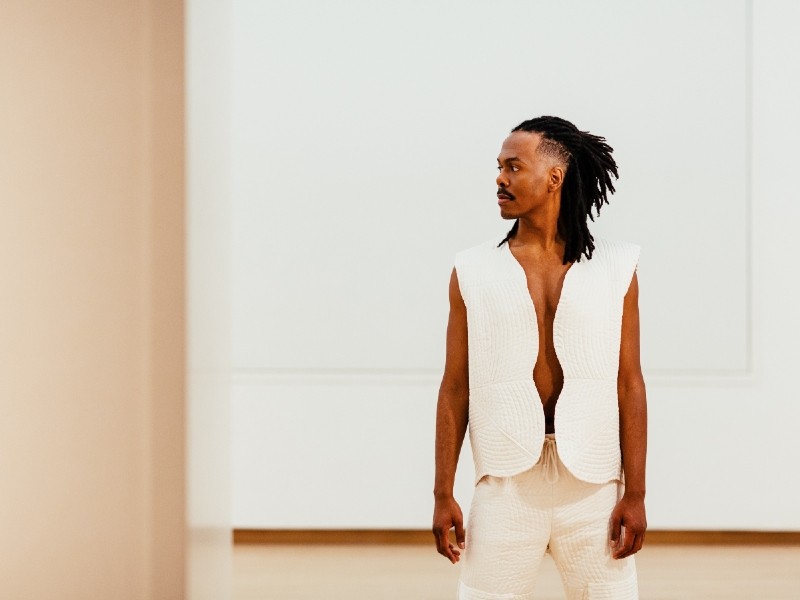
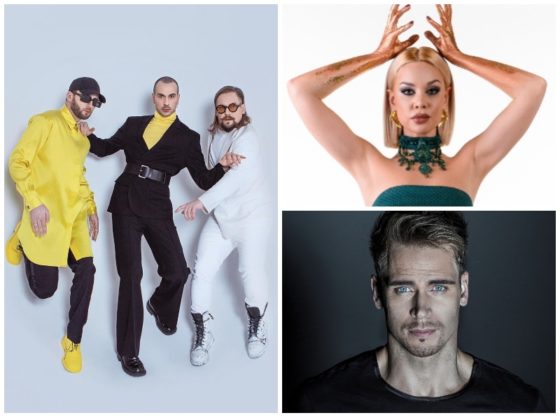

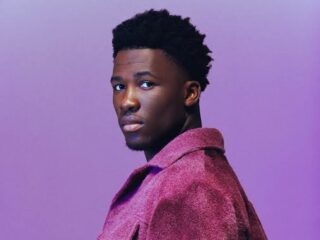
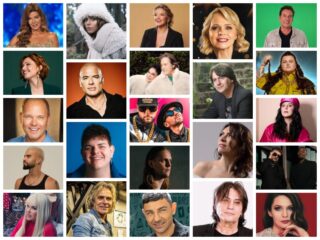
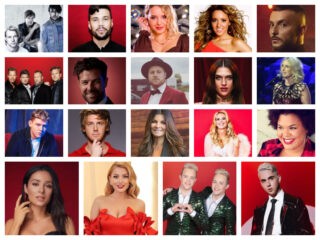
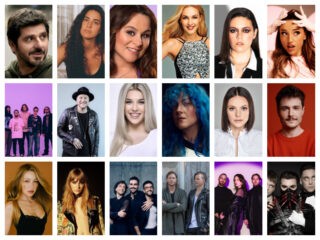
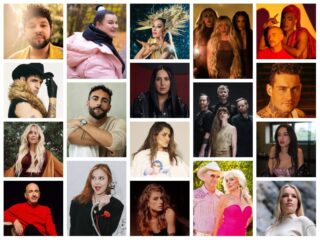
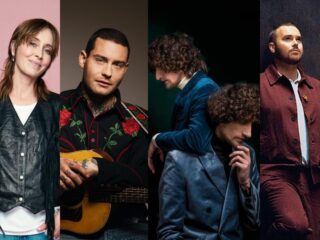
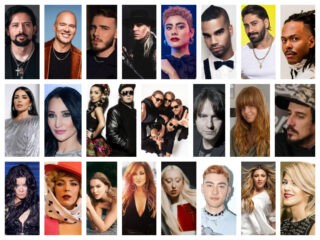
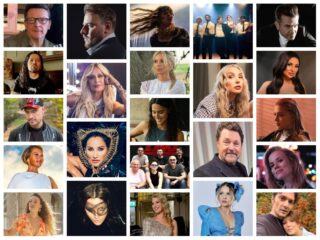
This song is 1 on my 5-a-day.
Yes that is Xillian
I totally love this guy. He was my “Thank you, Eurovision, for bringing this artist’s music to my attention” artist from last year. I will continue to follow his music long, long after Eurovision happens.
Yes! I am pretty sure it is.
His version of TGS last year was still the best version of that song I’ve heard. He really is an amazing talent and what a voice he has. I just wish his song was as good as what he had last year but I’m sure I’ll end up liking it a lot more than I do right now.
Whenever Xilan sees Jeangu on television, it would be so funny if he would be like: “Hey mom, I am on live television.”
I think they have deliberately different hair styles.
They indeed have different hairstyles, but my comment still stands. It was meant as a joke after all.
These two brothers are so cute
If everyone goes crazy for ethnic songs that show a given country’s culture, people should be raging at the Netherlands for sending this. In what way does this song represent dutch culture and music?
This song doesn’t represent Dutch culture and music, but Surinamese music and culture, the country where Jeangu is from. Remember, the anthem of Eurovision this year is “Open Up”, so I can say that we Open Up to a not usual type of music
Yeah, but if he’s representing the Netherlands, surely he should show dutch music. He’s not representing suriname.
He’s representing himself
Well, let him do an interval act instead then instead of literally having his name next to a country which he as you yourself said, isn’t even representing.
Dude just say the song’s too black for you and go. You can pretend it’s about not being “dutch enough” but that’s really not the part that’s bothering you, let’s be real here.
Suriname is a former Dutch colony. The Netherlands, like all European countries, benefited hugely from plundering other parts of the world and inferiorising their cultures, from which Europe still retains vast benefits today, including—as the article points out—a reliable source of vulnerable migrant labour. Jeangu certainly does represent Dutch culture, and anyone raging against that is either blind to the country’s colonial history or a racist. Jeangu should be thanked, not castigated, for contributing positively to Surinamese-Dutch cross-cultural exchange and representing how inclusive the Netherlands has, perhaps, become. If anything, the Surinamese should be raging because some of their best… Read more »
“If you choose to move to another country, adapt yourself into the culture.” That’s exactly not at all what the Netherlands did in Suriname, or Britain in India. This is an extremely hypocritical position. “If a person of indian descent represented the uk, you wouldn’t expect indian music would you?” I completely disagree with you. I think you’re limiting yourself as well as others, if you’re trying to box ‘music’ to national identity. “ Especially if you should be representing that certain country. I don’t remember lucie jones bringing welsh music to Eurovision.” Wales is part of the United Kingdom.… Read more »
The Netherlands and Uk didn’t adapt because they were trying to help and modernize those countries, obviously you don’t want to regress, you want to improve.
No. They were not trying to help those countries. Educate yourself.
Your comments show a schocking level of ignorance eurovsion 2016. Open Up!
in what way have I been ignorant? has the world come to a point where stating facts is being called ignorant? the funny thing is, if i said that croatia’s song sounded too american, no one would look twice at it, but because it’s an african country, people get all up in their feelings because of pc.
No, you’re being completely ignorant. Nothing about colonialism was good for the colonised—it was all about taking wealth and enforcing superiority for the coloniser—achieved through slavery, torture, forced labour, etc. If you think colonialism was so good, would you be happy being colonised by another country?
your viewpoints are truly disgusting.
This is their culture, they made it their culture. I’ll stop now, because it has already been patiently explained to you and you refuse to listen. I don’t even believe you are a real commenter, and have tried this type of thing before with your various other user-names. Hopefully you will be banned for the 76th time, so goodbye.
You don’t know anything about Suriname, which is obvious since you referred to it as an “African country”. Suriname is in South America.
The Dutch didn’t go to Suriname to “help and modernize it”. It was a literal slave colony. They brought African slaves there to harvest sugar so the Dutch could profit off of it.
Did you even attempt to educate yourself before making any of these claims?
Check France 1990 and France 1992.
Eurovision. Black representation from overseas areas. And it was beautiful
Well the Surinamese community is a significant group in dutch society with a significant stamp on culture. Our histories are tied, people intermingled with many Surinamese people in the Netherlands seeing themselves somewhere on the scale of ‘fully Dutch’ to ‘Surinamese dutchie’. They are a part of dutch culture, just like a dutchified indonesian/asian restaurant is a part of dutch culture. Components of Sranan tongo is extremely common in Dutch street language spoken by everybody in the Netherlands at this point. You could call Sranan tongo a regional language just like frisian altough the latter didn’t originate in our borders.
Altough I gotta admit that I am a little bit salty that in the 67 years of Eurovision AVROTROS sends a song in Sranan tongo before ever having send a song with Frisian in it XD
At least you’re not toxic, even if I disagree with you 🙂 .
I wasn’t being toxic with you either. You asked a question and I answered. You challenged and I pointed out why what you said was an unhelpful way of looking at the issue. Defending colonialism is a very outdated, misguided viewpoint. I actually tried to include some links to things you could read but the post was put under moderation. Your point about Syria is not analogous to colonialism—Syria is in civil war, while countries that were colonised were not calling out for aid, support or even in any particular trouble, they were simply vulnerable to more powerful countries coming… Read more »
So all the songs except Spain, France, the UK, Ireland, Italy, Serbia, Russia, Switzerland (and a few missing) should be then disqualified as English is not part of their culture?
Musically it’s their culture.
If you don’t understand how racist it is what you’re saying you’re a lost cause!
How am I racist when I’m just pointing out that his song is not typically dutch, you can’t argue with that.
Why this has to be typically dutch so that he represents The Netherlands. Did Duncan de Moor sent a typically Dutch song? Did Eleni Foureira sent a typically Cypriot song? If you search all the countries in Eurovision you’ll be shocked that the majority of them brings “Americanised Music”, with only Albania and Portugal (sometimes also very few countries join them) bringing most of the times 100% local music, like Jonida Maliqi in 2019 and Salvador Sobral in 2017. If you like it or not, local music is not promoted. Why then not send something totally different? The magic of… Read more »
Yes, arcade is very dutch because you’d hear it on dutch radio for example. Also, fuego was very Mediterranean, so I don’t know what your point is.
You apparently know nothing about Dutch Radio.. Suriname is South American, but Surinamese music has African influences. Sometimes, here in The Netherlands there is African music on the radio (probably Surinamese music as well). So, it won’t be a surprise if Birth of a New Age would do well on the Dutch radio.
i love how im seeing him spew hate on every article i click about one of this years black artists. definitely racist
It doesn’t matter.. Voices has elements too that aren’t very Swedish.. Croatia is not a very Croatian song now is it.. Stupid remark
That is the whole point of the song: “We are a part of your history. It is not a happy part, but we are stronger now, and we make Europe stronger.” The video did an absolutely amazing job of really driving this message home, and in a very classy and uplifting way.
A fact is that after giving more listens to the 2021 song I understand the song is not that bad, but not yet my cup of tea
I love this man.